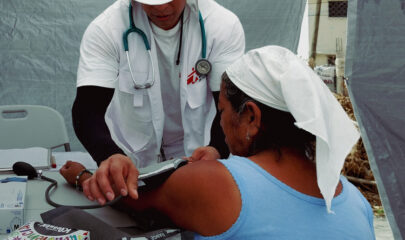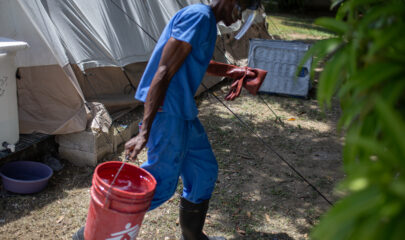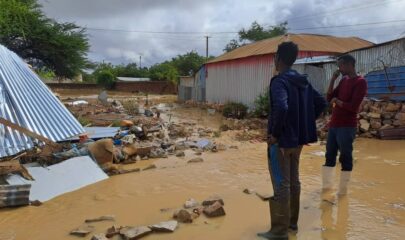Stephanie Amalia, known as Fani, is an educator-counsellor from Depok, in West Java, Indonesia. Fani started working with Doctors Without Borders/Médecins Sans Frontières (MSF) in Banten province in May 2018. MSF runs youth health projects in the Labuan and Carita sub-districts of Pandeglang Regency in Banten.
“I am a counsellor for 10- to 19-year-olds, as the project is focused on adolescent health. And this is different from counsellors for children and adults, in the types of problems and mental health issues they face,” says Fani.
Fani’s sessions with her patients are confidential. She listens, empathizes, encourages and empowers them and follows up with the teenagers she supports.
These conversations help young people feel comfortable sharing stories, Fani observes, and most tell her they have a more positive outlook after counselling. One young woman who lost her son was suffering from depression. After undergoing counselling, she said she felt better able to continue with her life.
“As an educator-counsellor, I don’t just sit in an office or in a health facility. I also make door-to-door visits with MSF midwives to monitor the condition of teenage mothers who are pregnant,” says Fani. “They live in such a different place, with poor telephone signals, far from the main road.”
In villages, Fani and her colleagues support health facilities managed by a single nurse. Because of the rural location, the nurse often travels to patients by motorcycle. This leaves the health facilities empty most of the time.
Without reliable telephone signals, if Fani and the rest of the MSF team want to find the local nurse they must stop in at each house to look for them.
“My experiences visiting the villages reminded me, once again, that Indonesia is huge. There are so many things that need to be addressed.”
MSF has helped two health clinics provide adolescent health services since 2018.
“We have conducted training and coaching,” says Fani. “In 2021, we will look at the lessons we’ve learned and start shifting management to the health clinics. It is all about capacity building, both among the adolescents themselves and among the health staff. When MSF leaves, they can run it on their own.”
According to Fani, all she did was talk and listen. But she sees she has been able to help people.
“I am grateful. This makes me reflect again that all problems have solutions. They only need someone to help open their eyes so they can see a way out of the problem.”


